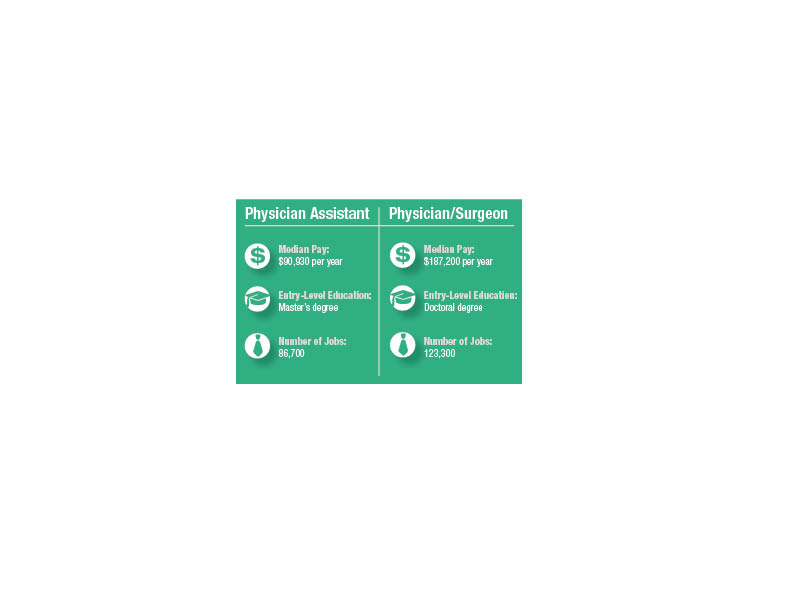Jones, a junior majoring in psychology, is one of many students across the U.S. studying to become a physician assistant, or a PA.
“A PA has a lot more flexibility than a traditional physician,” Jones said.
He originally intended to get an M.D., but he cites the Affordable Care Act as one of the reasons for the change, along with the long years associated with medical school.
Physician assistants are required to undergo a specialized program and are licensed by the state to practice medicine with the supervision of a licensed physician.
Jones, a member of the Army National Guard, has worked as a medic and said the military uses physician assistants in almost all of the same capacities as doctors.
UA offers a Pre-Physician Assistant Program, but according to the department, a student can major in virtually anything and enter into a post-graduate program, provided the prerequisites are met.
“Schooling for a physician assistant can take as few as seven semesters with just one year in residency,” Jones said. “What’s more is that a PA who wants to change his specialty can do so with just some additional residency work as opposed to more schooling. Even then, a PA can make more than enough to support a family.”
Amanda Boornazian, a freshman on the pre-med track, said she considered being a physician assistant after shadowing multiple medical professionals.
“I ended up choosing to take a pre-med track because I want to have the opportunity to specialize in pediatric oncology,” Boornazian said. “I want to be more involved with the treatment and diagnosis even if that means being less involved with the patient.”
Boornazian noted that, like Jones, many of her friends have been deterred from pre-med and turned instead to the PA route due to concerns over the Affordable Care Act.
However, she said she isn’t personally worried.
“It may affect wages in the medical field some, but for me it’s more about helping people,” Boornazian said.









